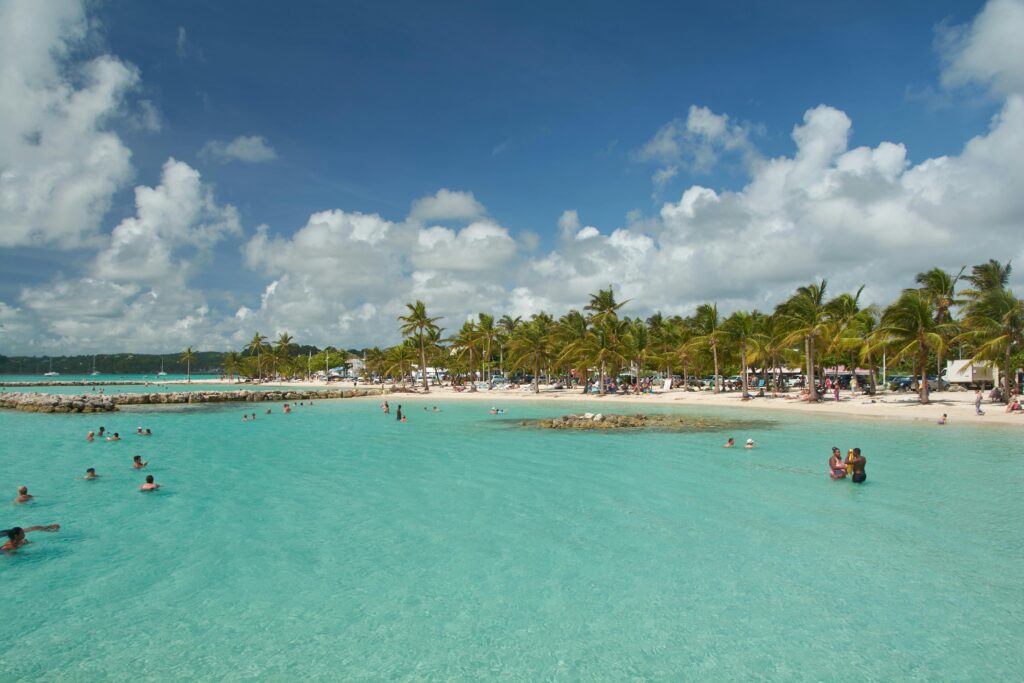
Understanding Travel Insurance: The Basics
When planning a vacation, travel insurance often feels like that insurance policy you hope you never need. But, let’s be honest—it can save you a lot of headaches when things go sideways. And, as those of us who’ve weathered a canceled flight or a misplaced suitcase can attest, it’s worth considering.
However, if you’re venturing into hurricane-prone areas or hopping on ferries, things can get a bit more complicated. Are your options truly safe, or is it just another sales pitch? Let’s break it down together.
What Does Travel Insurance Typically Cover?
Most travel insurance policies cover a few essential categories: trip cancellations, medical emergencies, and lost luggage. However, the specifics can vary widely depending on the insurer and the type of policy you choose.
Trip Cancellations
This feature is invaluable if a last-minute issue arises—think illness or a family emergency. Your insurance can reimburse you for non-refundable expenses like flights and hotel bookings. But what if a hurricane strikes?
Medical Emergencies
If you get sick or injured while traveling, this portion will help cover your medical expenses. However, it’s vital to read the fine print. Some policies might restrict coverage if you’re in a high-risk area during an event like a hurricane.
Lost Luggage
We’ve all heard stories about bags ending up across the country instead of at your destination. Travel insurance can help you recover some costs or replace essential items. But, just like anything else, there can be stipulations.
Hurricanes: Are You Covered?
Hurricanes are a significant consideration for anyone planning travel to affected areas. When it comes to travel insurance, many policies will cover you if you purchase the insurance before a hurricane watch or warning is issued. However, once a storm is forecasts, your options may change dramatically.
Proactive Approaches to Insurance
If you know you’re heading towards hurricane season, consider purchasing a “cancel for any reason” policy. While more expensive, it allows you to cancel your trip without a detailed explanation or justification if your plans change due to an impending storm.
Timing Matters
From my own experiences, timing truly is everything. If you decided to buy a policy as a storm starts brewing, brace yourself; claims related to that storm will likely get denied. It’s like trying to file a claim after the damage has already been done—good luck with that! So, planning ahead is crucial.
The Ferry Factor: What’s the Deal?
Traveling by ferry can be an absolute joy—enjoying fresh sea breezes and stunning views. But ferries are also vulnerable to cancellations during severe weather conditions, including hurricanes.
Ferry Cancellations
If a ferry you’ve booked gets canceled because of a storm, you may think your travel insurance has your back. However, it depends on the policy. Some insurance plans don’t cover cancellations due to weather, while others do—especially if the storm was predicted before you purchased the insurance. Always clarify these points before you buy.
Consider Alternative Transportation
Sometimes, your best bet during hurricane season might be to choose alternative modes of transport, especially if you have flexibility in your schedule. If you can drive instead, it may save you the hassle of canceled ferry trips altogether. Plus, you’ll get to see some sights along the way!
Real Stories, Real Outcomes
You might be wondering if these policies actually work. I had a friend who planned a dream trip to the Caribbean. She bought a robust policy months in advance. As it turned out, a hurricane developed just days before her departure. Thanks to her early purchase, she was able to cancel the trip and receive a full refund. On the flip side, another buddy waited too long and ended up having his claim denied when his ferry was canceled due to a storm. It turned into a costly mistake.
Tips for Choosing the Right Policy
So how do you sift through the clutter and find a policy that feels safe? Here are some simple tips:
1. Read the Fine Print
Policies can have exceptions and stipulations lurking in the details. Don’t be shy—ask questions whenever something feels unclear.
2. Compare Different Providers
Not all travel insurance plans are created equal. Use comparison tools to help find the best rates and coverage options. It’s worth taking the time to shop around.
3. Consider Your Destination
If you’re headed to an area known for hurricanes, explicitly look for insurance that covers weather-related cancellations. It might cost a little more but could save you a lot in the long run.
4. Check Customer Reviews
You wouldn’t buy a pair of shoes without checking the reviews, right? The same goes for travel insurance. Look for feedback from previous customers regarding the claims process and customer service experiences.
Wrapping It Up: Is It Worth It?
Travel insurance isn’t going to win any awards for excitement, but here’s the thing: it can help you avoid financial disaster if Mother Nature decides to throw you a curveball. It’s all about your comfort level and the risks you’re willing to take.
If you’re venturing to areas known for hurricanes or planning to explore by ferry, it’s definitely worth considering a policy that gives you peace of mind. Remember—nothing ruins a vacation faster than worrying about what might go wrong!
So, off you go! Whether you’re sailing to paradise or exploring bustling cities, just be prepared and stay informed. And hey—if you need additional tips on keeping your travels fun and stress-free, check out this [Related: example] for more insights.
**Related Reading:** – [Related: How to Plan a Solo Trip on a Budget] – [Related: Top Destinations for First-Time Solo Travelers] **#SoloTravel #Travel #Insurance #Policies #Covering #Hurricanes #Ferries #Safe**
